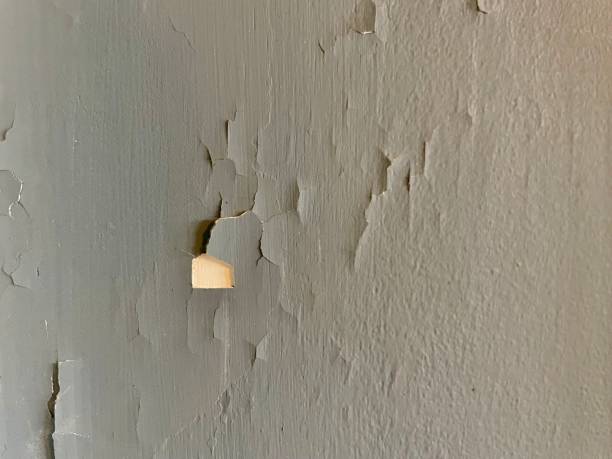Selling a House in Probate California: Can You Sell, & How?
If you’re selling a house in probate in California, there is a lot to consider, and if you’re confused about how best to proceed, you’re not alone.
Fortunately, we at SoCal Home Buyers buy and sell real estate like yours, and we bypass the middlemen in the process, including real estate agents and attorneys.
Ready to sell a probated house without the stress and hassle?
You’ve come to the right place.
Table of Contents
Selling a house in probate California guidelines
Probate is the court process of verifying that a will is valid, of ensuring that the financial responsibilities of the person who passed away – the decedent – are taken care of, and of transferring the decedent’s assets to their named heirs and beneficiaries. The executor of the will is the personal representative of the estate, and they help direct probate’s progress under the courts direction.
As the executor of the will, you have the right to sell a house in probate as long as there are enough assets in the decedent’s estate to address all remaining debts and legal fees. While a probate home sale is possible, it’s also a complicated legal matter that can lead to an array of challenges.
Want to sell probate property? We can help with probate real estate sales!
Selling probate property can be very difficult on your own, but with professional help, you can make quick work of the matter. At SoCal Home Buyers, we are seasoned real estate investors who have the resources, knowhow, and experience to help you sell a probated home during the probate process as efficiently as possible.
What is a probate sale in California?
Every state has its own procedures regarding the sales of real property in probate, but most are similar to California probate law. In the United States, we don’t inherit directly from our relatives – instead, any assets that do not have beneficiaries attached and that are not held in trust, go through the probate process.
The Probate Process
If the decedent left a will, the person who guides the probate process is called the executor, and if there is no will, the person who guides the probate process is called the administrator. The basic elements of probate include:
- The presiding judge approves the will if there is one.
- The judge approves the assigned executor – or appoints one if the will fails to assign the role.
- The executor calculates the value of the estate, gives required public notice of the decedent’s death, and pays their remaining bills and taxes.
- The executor then distributes the remaining assets – according to the decedent’s wishes if there is a will and according to California laws of inheritance if there isn’t.
The executor’s involvement ensures any issues that arise are addressed, and the probate process ensures that heirs aren’t saddled with the decedent’s debts. Ultimately, probate secures the administrative rights of heirs over the assets to which they are entitled.
The executor’s specific role
The executor of an estate may need to take on all the following primary tasks regarding property in the estate:
- Notifying the heirs about the probate process
- Paying the decedent’s pending debts
- Collecting on debts owed to the decedent
- Managing the estate’s assets
- Distributing all remaining assets according to the decedent’s wishes or according to state law if there’s no will (see our article on removing items before probate also)
The pre-probate property sale procedure
As the executor, you have 30 days from your relative’s death to begin probate, and the Independent Administration of Estates Act (IAEA) grants you the right to sell a property without the court’s approval as long as the following apply to the probate house sale process:
- You give the heirs 15 days notice before proceeding.
- The heirs have no objection to the sale.
When you sell probate property, such as a house, the sale must be for at least 90 percent of its appraised value – based on an appraisal that was made within no more than a year.
Can you sell a house before probate is completed?
Yes, you can sell a house before probate is completed, but selling inherited property in California requires complex legal maneuvering. The primary complication is that the probate process is under the full authority of the probate court, which means that you have less independence in terms of accepting an offer from an interested party.
Can I sell my house fast if it’s in probate? The fact is that you can, and the expertise of a professional real estate investor can help. The basic steps if you want or need to sell during probate and you’re doing it on your own include:
- The first step in the process is obtaining a professional appraisal if you don’t already have a recent one.
- Next up is petitioning the probate court regarding the sale of real estate and awaiting the court’s approval.
- The next step is listing the house at a fair price.
- State law requires that any buyer deposit at least 10 percent of the purchase price after an offer is accepted during probate.
- Before the transaction can be completed, you’ll need to advertise the notice of proposed action – or the sale – in a local newspaper, which informs all interested parties about the proposed sale and the fact that open bidding will be allowed at the court hearing.
- At the probate court hearing, bidders can proceed in $500 increments above the offer of the original buyer, who is allowed to join the bidding.
- If you sell the house to anyone other than the original purchaser during this bidding process, you’ll need to refund their deposit before sale of the property can commence, and the new purchaser must put down a 10 percent deposit with the court in the form of a cashier’s check.
There’s a lot involved, and along the way, you’ll need to attend to a wide range of details, which means there is plenty of room for mistakes to be made and for the sales process to stall.
Looking to sell a probate house? We can help!
Selling property in probate requires skill and patience, and a sale cannot proceed without carefully addressing each of the legal requirements involved. At SoCal Home Buyers, we take care of all the details for you – freeing you up to concentrate on the next chapter in your life. Because we pay cash for houses sold in probate, we help speed up the process while taking a considerable amount of the stress off of you at this difficult juncture in your life.
How to sell a house in probate with SoCal Home Buyers
At SoCal Home Buyers, we appreciate the opportunity to purchase your probated house, and we’re committed to making the process as easy for you as we can. You have a lot going on, and the last thing you need is a lengthy probate that leaves you fretting about how to sell estate property. We have a wealth of experience buying probate property in California and look forward to helping you! It all begins with a few simple steps:
- Give us a call at 951-331-3844—or fill out the short form below—to request your fair cash offer.
- Await our prompt response to discuss your property in greater detail and schedule a one-time inspection that allows us to offer the highest amount possible.
- At the time of the inspection, our in-house inspector will quote you a fair cash offer, and if you’re on board, you can consider your home sold!
- Choose your closing date, and leave the rest to us. You can choose payment via check or wire transfer. It simply doesn’t get any easier.
FAQS
What’s the difference between a probate real estate sale and a normal sale?
Probate real estate sales occur when the property being sold is in probate, which means it is in the process of becoming the legal property of the heir or heirs who will ultimately inherit it. This makes selling the property a more complicated legal matter than a normal sale.
Can you carry out a probate sale without court confirmation in California?
In highly specific situations, you can carry out a probate sale without court confirmation in the State of California. In order to do so, however, the Independent Administration of Estates Act must grant the executor of the estate the authority necessary to proceed with the probate sale.
How long does a probate sale take?
Because the probate sale of real estate is more complicated than the normal process and because the probate process itself tends to be long and drawn out, probate sales are often lengthy. Working with a trusted real estate investor can speed up the process significantly.
What Is the difference between probate sale with full authority vs limited authority?
When the executor has full authority to make a probate sale, there are fewer regulations that guide the process. For example, an executor with partial authority cannot sell the property for less than 90 percent of what it’s valued at, and the sale can’t be completed until probate is resolved.
Can you sell a house during probate as the executor?
In certain situations, you can sell a house during probate as the executor of the estate. When the Independent Administration of Estates Act bestows full authority on the executor, they can proceed with selling a house during probate as long as they remain within the strict confines of the law.
Can you sell a house without probate under any circumstances?
There are circumstances in which you can skip the process involved in a probate estate sale and sell the house directly. To do so, however, the executor of the estate must have full authority under the Independent Administration of Estates Act and the approval of the beneficiaries involved.
How much does a probate case cost?
The cost of a probate case in California includes set court fees – along with legal fees, which are based on the value of the estate itself and are calculated at a percentage. Selling real estate prior to probate’s finalization can save a considerable amount in probate expenses.
How should I pay for probate fees?
California has some of the highest probate costs in the nation, which makes paying for probate fees an important matter to consider. Typically, probate expenses are paid by the estate itself before the remaining assets are distributed to the heirs in the form of their inheritance.










